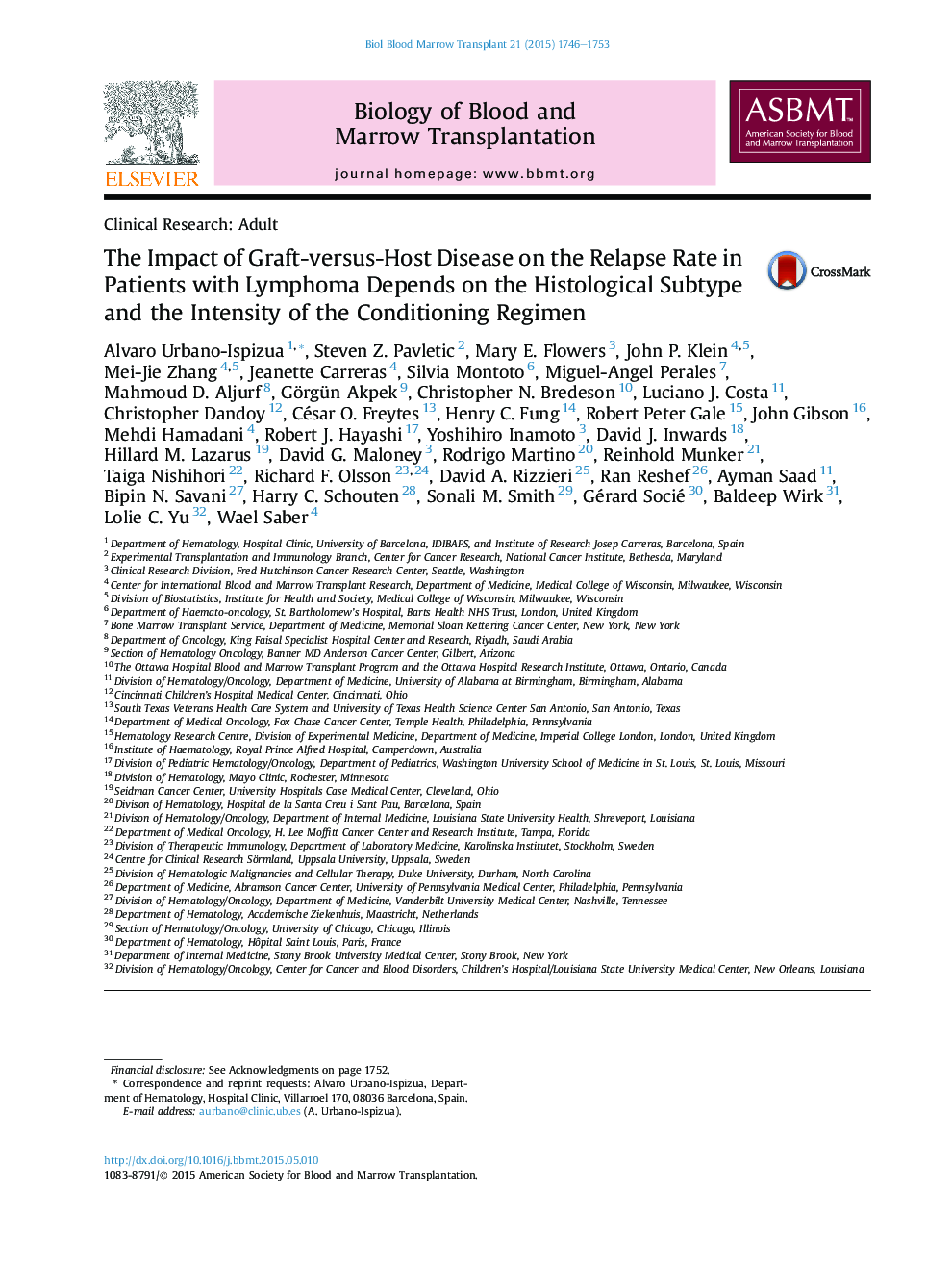| Article ID | Journal | Published Year | Pages | File Type |
|---|---|---|---|---|
| 2101313 | Biology of Blood and Marrow Transplantation | 2015 | 8 Pages |
Abstract
The purpose of this study was to analyze the impact of graft-versus-host disease (GVHD) on the relapse rate of different lymphoma subtypes after allogeneic hematopoietic cell transplantation (allo-HCT). Adult patients with a diagnosis of Hodgkin lymphoma, diffuse large B cell lymphoma, follicular lymphoma (FL), peripheral T cell lymphoma, or mantle cell lymphoma (MCL) undergoing HLA-identical sibling or unrelated donor hematopoietic cell transplantation between 1997 and 2009 were included. Two thousand six hundred eleven cases were included. A reduced-intensity conditioning (RIC) regimen was used in 62.8% of the transplantations. In a multivariate analysis of myeloablative cases (n = 970), neither acute (aGVHD) nor chronic GVHD (cGVHD) were significantly associated with a lower incidence of relapse/progression in any lymphoma subtype. In contrast, the analysis of RIC cases (n = 1641) showed that cGVHD was associated with a lower incidence of relapse/progression in FL (risk ratio [RR], .51; P = .049) and in MCL (RR, .41; P = .019). Patients with FL or MCL developing both aGVHD and cGVHD had the lowest risk of relapse (RR, .14; P = .007; and RR, .15; P = .0019, respectively). Of interest, the effect of GVHD on decreasing relapse was similar in patients with sensitive disease and chemoresistant disease. Unfortunately, both aGVHD and cGVHD had a deleterious effect on treatment-related mortality and overall survival (OS) in FL cases but did not affect treatment-related mortality, OS or PFS in MCL. This study reinforces the use of RIC allo-HCT as a platform for immunotherapy in FL and MCL patients.
Keywords
Related Topics
Life Sciences
Biochemistry, Genetics and Molecular Biology
Cancer Research
Authors
Alvaro Urbano-Ispizua, Steven Z. Pavletic, Mary E. Flowers, John P. Klein, Mei-Jie Zhang, Jeanette Carreras, Silvia Montoto, Miguel-Angel Perales, Mahmoud D. Aljurf, Görgün Akpek, Christopher N. Bredeson, Luciano J. Costa, Christopher Dandoy,
